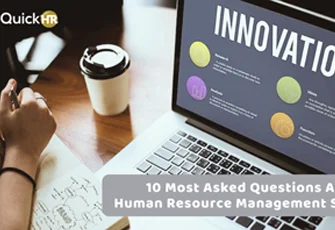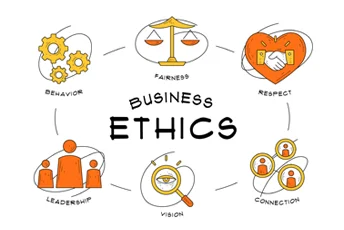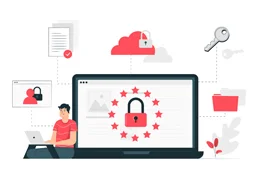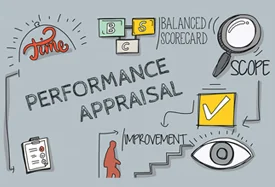
7 Biggest HR Challenges in 2023: How to Solve Them
Posted on 06 April 2023 in Business | Anna Beatrice
As we all adjust to the New Normal, HR leaders face a unique set of human resource management challenges in a post-pandemic world. From navigating the ever-evolving regulations to retaining employees, now more than ever, they need to be prepared to face these HR challenges head on.
We’ve asked HR leaders across the globe about the most significant problems they have encountered and the smartest ways to tackle them and build a brighter future for their employees.
Here are 7 HR challenges in HR management and how to overcome them:
Rapidly Adapting to Completely Remote Working Practices
HR teams are having to rapidly adapt to completely remote working practices or risk being left behind in what is now viewed as pre-pandemic workplace procedures.
Establishing a remote working setup brings its own set of challenges for any team; however, this is something that needs to be at least explored to ensure that you're meeting hiring demands for an ever-changing world of work.
Wendy Makinson, HR Manager, Joloda Hydraroll
Fulfilling Hybrid Staffing Requirements
HR teams are having to rapidly adapt to growing remote and hybrid staffing requirements, and procedures must be in place to not only provide these options for employees but also improve upon current hybrid and remote working procedures as requirements, such as remote training continue to develop.
Tracey Beveridge, HR Director, Personnel Checks
Ensuring the Health and Safety of Employees
The biggest challenge faced by HR managers in a post-pandemic world is ensuring the health, safety, and security of their employees.
For instance, a less-common challenge they may face is formulating new workplace policies that reflect dynamic and fluid working conditions where remote work can become the norm.
This means HR managers must ensure sufficient communication between teams to maintain an environment of trust, understanding, and collaboration to avoid disrupting the productivity of the organization.
Moreover, they must expect changes in technology needs and cultural shifts in employee values so that not only are employee expectations understood, but company policies are clear and up-to-date.
Grace He, People and Culture Director, TeamBuilding
Supporting Employees' Mental Health
It's no secret that the pandemic has made things tough for HR managers. One of the biggest challenges they're facing now is figuring out how to support employees' mental health in a world that feels more uncertain than ever before.
That means trying to help people find a balance between work and life and giving them flexibility in their schedules.
In a post-pandemic world, implementing proactive strategies is crucial. For example, providing more comprehensive healthcare benefits could be a great solution.
By offering better access to affordable professional counseling services as part of their benefits package, HR managers can show employees that their well-being matters most, which can reinforce a positive work culture.
Having access to these resources can make a vast difference for anyone who's struggling with stress or anxiety and can lead to an increase in engagement, productivity, and job satisfaction.
Samuel Johns, CPRW and Career Counselor, Resume Genius
Staying Flexible
After an outbreak of the contagious disease, COVID-19, companies had to change their policies. They became flexible in providing tasks and also made changes in standard login hours.
Many rules and regulations were changed to retain employees and help them in balancing work and life. These changes affected the HR routine that had been running for years.
Now HR managers have to make flexible policies and include new ones in the list. They have to keep track of who works from home and who works from an office.
HR managers have to keep records of employees working remotely. They even have to set up software for remote workers for employee training.
HR managers also have to keep a record of resources required for employee training. Overall, they have to stay more flexible and accountable now than in the post-pandemic era.
Saikat Ghosh, Associate Director of HR and Business, Technource
Recruiting and Retaining Employees
One of the biggest challenges for HR in a post-pandemic world is recruitment and retention of employees. Remote work looks to be here to stay, and while it has widened the pool of candidates, it also means more competition for talent.
Retention has also become more challenging as employees re-evaluate their priorities and seek more flexibility and work-life balance.
To address these challenges, HR departments must be creative in their recruitment strategies, prioritize employee experience, and offer competitive compensation and benefits packages.
Lilia Koss, Community Manager, Facialteam
Keeping Employees Engaged
Employee engagement is going to be the biggest challenge for HR managers in 2023. Not only has "quiet quitting" become more prevalent over the past twelve months, but employees are also returning to the office from their remote or hybrid roles, which can cause feelings of discontent.
As such, HR managers must keep employees satisfied and interested in their roles. If not, disengaged employees who are disgruntled with their roles and feel detached from their work can cause serious issues in the workplace. Not only do disengaged employees underperform, but they also negatively influence top performers.
Janelle Owens, Human Resources Director, Guide2Fluency
Conclusion
As the world of work rapidly evolves, HR leaders must be prepared to face a variety of challenges in the years ahead. By understanding and addressing these challenges proactively, HR teams can ensure a successful transition to the post-pandemic era.
Discover how QuickHR HR and payroll software in Singapore can help you transform your HR strategies and strengthen your team’s synergy!
Enjoying this content? Subscribe and we’ll send the latest updates and special offers directly to your inbox.
































































































































